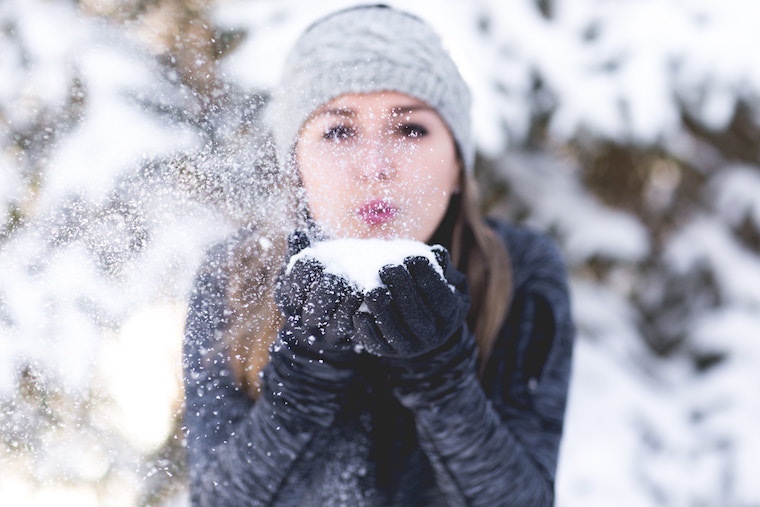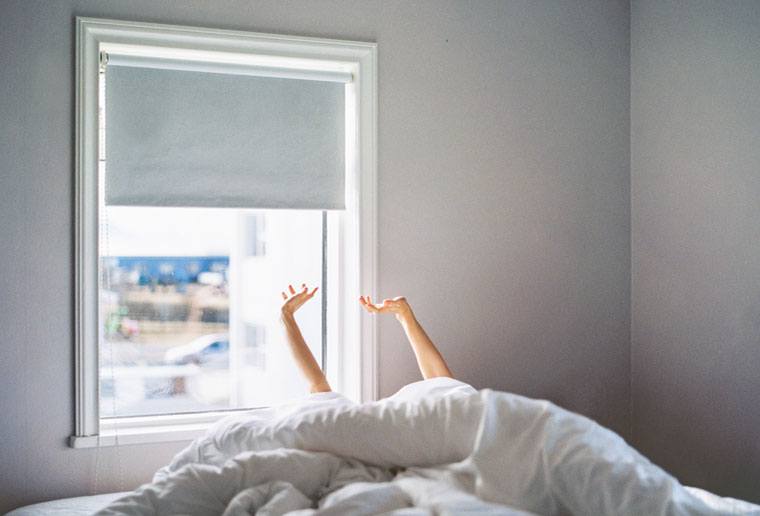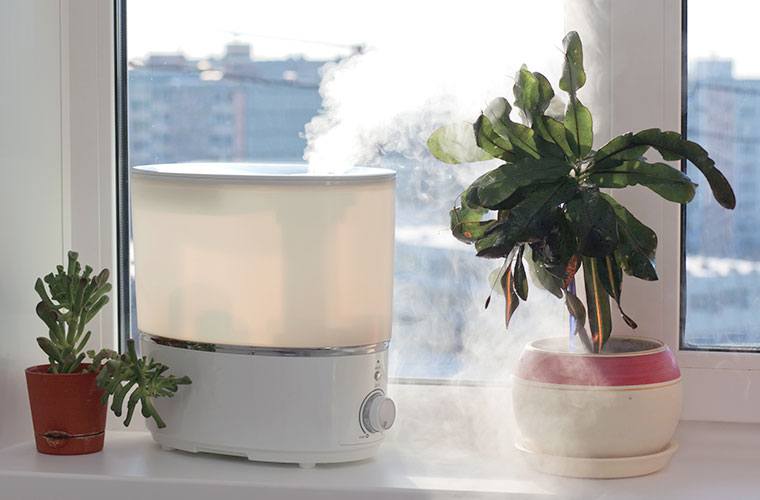8 Natural Ways to Beat the Winter Blues, According to a Psychiatrist
Winter can be tough: When the sky falls dark before 5 p.m., it can be hard to summon your sunniest mood. Whether you have a touch of seasonal affective disorder or just don't love winter, rockstar psychiatrist Drew Ramsey, MD, says you *can* beat the cold-weather blues. Here, the Well+Good Council member shares a few of his ideas on feeling more energetic and positive—just in time for the solstice.
The depth of winter is upon us. The bone-chilling cold is here, the sunlight is scant, and the most productive thing about you is your cough. Over the years, I’ve learned a few things as I try to crack the code on the winter blues for my patients and myself. My Well+Good Winter Blues Rx is one part adventure, a dash of reality, and a twist of retail therapy.
Here are 8 things to keep in mind when the temperatures drop.

1. Know that it’s not about vitamin D
Sure, get your vitamin D level checked. If you have any pigmentation to your skin, it's probably low. The bummer is that no scientific studies have ever shown that taking vitamin D helps winter depression. Having low levels of vitamin D increases the risk of depression, but only for people with a prior clinical diagnosis of depression.

2. Get outside
This is a two-pronged issue for most: gear and fear. "Gear" helps us feed our souls, while nature helps transcend any holiday materialistic guilt. Deep in the forest with your snowshoes, you’ll be toasty with a base layer of silk and and a windproof shell. Don’t sweat too many nerdy gear details—my middle layer is currently a Uniqlo jacket from the vending machine at LaGuardia. "Fear" usually stems from inexperience. Winter hiking, skiing hut-to-hut, carving big mountain turns in the fresh powder, and winter sports are super accessible. Grab some gear. Grab a guide or a lesson. And go.

{{post.sponsorText}}
3. Be seasonal
It’s dark out, so sleep more. It’s frigid, so drink more hot soups, broths, and tea. Winter is a time of rest and reflection, a season of long reads by the fire, and long talks. As we end the year and reflect back, we anticipate a starting line of 2018 and the light of spring. Our farm has been bedded for the year, and without guilt or pretense, you should too. Other seasonal perks? Hit the sauna to melt the bone-chill. (I’m turning a closet into a sauna this week!) Find your favorite local fireplace. Sing carols and songs of joy.

4. Beware the beige diet
My body responds to the cold by gaining five to 10 pounds entirely from Lazy Green Mac-n-Cheese (kale, quinoa noodles, cheddar). Lower moods often mean more carb-craving for some. And even for loyal adherents of a low-sugar lifestyle, well, holiday cookies are tempting. Spend a moment and contemplate your winter rainbow: orange squash, purple yams, and crispy Brussels sprouts. These colors represent different phytonutrients that influence our cells and DNA in health-promoting ways (you know, battle inflammation, squelch free-radicals, etc.). Get more seafood, too. Long-chained omega-3s—the kinds that are concentrated in wild salmon, anchovies, and mussels—modestly boost mood in trials for clinical depression.

5. Go to the beach
Unlike other forms of the blues (job blues, boyfriend blues, apartment blues) you can 100 percent escape the winter blues by escaping winter itself. Plan a quick trip that fits your budget to someplace fun and warm. Think about the weeks you tend to struggle most and book it now, so it’s in your #toobusy calendar.

6. See the light
Before medications or supplements, I tend to recommend a light box for winter depression. Light therapy needs to be bright (around 10,000 lux), close to you, and requires 20–30 minutes in the the morning. Dawn simulators can be helpful if you are dragging out of bed. Make sure to dim your lights and screens after sundown.

7. Face reality
It's winter. Put a humidifier in your bedroom and wash your hands more. Stock up on Chapstick and moisturizer. Deal with drafts in your living space. Winter is here—and doing what is in your control to get sick less and care for the realities of winter will help keep you well.

8. Get some help
People wait until the 11th hour to get help. If your mood and energy are significantly slipping, or maybe you feel sleep-deprived, irritable, and hopeless, or maybe you just aren’t enjoying any of your regular activities, remember: Seasonal depressions come in many stripes. You don’t need to be clinically depressed or hitting rock bottom to merit some assistance getting back on track. Expert advice could come from a therapist, health coach, psychiatrist, or psychologist, or your teacher or religious leader. Just ask. Learn more about seasonal affective disorder from the American Psychiatric Association.
 As a psychiatrist and farmer, Dr. Drew Ramsey specializes in exploring the connection between food and brain health (i.e. how eating a nutrient-rich diet can balance moods, sharpen brain function, and improve mental health). When he’s not out in his fields growing his beloved brassica—you can read all about his love affair with the superfood in his book 50 Shades of Kale—or treating patients through his private practice in New York City, Dr. Ramsey is an assistant clinical professor of psychiatry at Columbia University College of Physicians and Surgeons.
As a psychiatrist and farmer, Dr. Drew Ramsey specializes in exploring the connection between food and brain health (i.e. how eating a nutrient-rich diet can balance moods, sharpen brain function, and improve mental health). When he’s not out in his fields growing his beloved brassica—you can read all about his love affair with the superfood in his book 50 Shades of Kale—or treating patients through his private practice in New York City, Dr. Ramsey is an assistant clinical professor of psychiatry at Columbia University College of Physicians and Surgeons.
What should Drew write about next? Send your questions and suggestions to experts@www.wellandgood.com.
Loading More Posts...